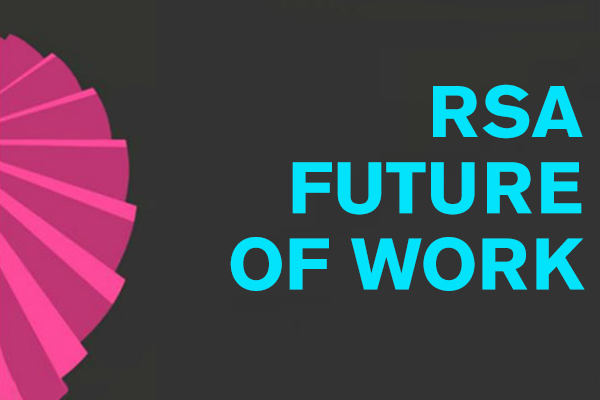The government’s new Review on AI is a welcome reprieve from the excessive fear that hangs over automation. The UK could be a world leader in this technology, if only we let ourselves.
A little over 40 years ago, the respected British mathematician James Lighthill published his government-commissioned review into artificial intelligence. “In no part of the field”, he lamented, “have discoveries made so far produced the major impact that was promised.” The search for sophisticated AI was deemed a wild goose chase. Enthusiasm waned. Funding dried up. Support for AI research was terminated in all but two UK universities.
How very different the picture is today. The government’s new review on artificial intelligence, led by Dame Wendy Hall and Jerome Pesenti, is glowing about AI’s potential. “We are at the threshold of an era where much of our productivity and prosperity will be derived from the systems and machines we create”, the authors write. “The impacts on society and the economy will be profound”.
They are entirely correct. Artificial general intelligence (AGI) – the stuff of science fiction that ‘thinks’ just as humans do – is many decades from realisation. But ‘narrow’ AI is achieving feats once thought impossible just a few years ago. Algorithms can detect cancers as accurately as trained pathologists, spot fraudulent financial transactions in a matter of milliseconds, and translate languages to a stunning degree of accuracy.
The problem, as the Review emphasises, is that the UK is falling behind its competitors in developing this technology. Between 2011 and 2015, the UK published 10,000 academic papers on AI. Impressive, until you realise that China released four times as many. On commercial funding too, we are falling short. Whereas £294m of VC funding went into UK AI companies in 2010-16, the figure for the US was £4.8bn.
Neither are UK businesses and public services making sufficient use of this technology. Retailers like Ocado and Amazon are pioneers, deploying algorithms to forecast demand for products, optimise the delivery routes of trucks, and more besides. But the same cannot be said for most firms. Just 14 percent of the business leaders surveyed by the RSA/YouGov say they are actively investing in AI. Some are adopting a ‘wait and see’ approach. Others are blissfully unaware.
The Review offers sensible solutions. One is to establish Data Trusts that would share best practice on how to deploy algorithms and make use of dormant data. Another is to create industry-sponsored Masters places, and to fund an additional 200 extra PhD spots at UK universities. Also proposed is an AI Council, which would be geared towards making industry ‘AI ready’. Firms would be shown how to spot investment opportunities, retrain staff for new roles, and build algorithmic trust among consumers.
But wait. Aren’t algorithms supposed to decimate jobs and depress wages? Why would we ever want to shift research and investment up a gear? It doesn’t take a leap of imagination to see how AI diagnostic tools might replace the jobs of medical practitioners. Or how AI powered self-driving cars might push several hundred thousand taxi drivers out of business. Estimates of automation range from the alarming (9 percent of jobs according to the OECD) to the extremely alarming (35 percent according to the University of Oxford).
We should heed these warnings. There is nothing to lose and everything to gain from planning ahead. But nor should we let prophecies of mass automation stifle investment in AI (and robotics for that matter). Our latest report The Age of Automation argues the more likely scenario is a transformation of jobs rather than their elimination. Technology will often complement workers, raising productivity, boosting wages and phasing out mundane and dangerous tasks.
If anything, the Review does not go far enough in extolling the virtues of AI. There are few challenges which it cannot help address, from extending lifespans to tackling climate change. GlaxoSmithKline believes its investment in AI will cut average drug development time from 5.5 years today to a single year. In the US, deep learning techniques are being used by environmental agencies to predict threatening climate events with 80-90 percent accuracy.
We have all the ingredients in place to become a world leader in AI: the heritage, the talent, the universities, the entrepreneurial ecosystems. British-born Alan Turning was the father of modern computer science, and his legacy lives on in the minds and institutions of this country. The UK doesn’t have a tech giant equivalent to Google, Facebook or Baidu – but it is home to a handful of world beating AI companies, among them DeepMind, SwiftKey and VocalIQ. These are glimpses of our enormous potential.
So there is a choice to be made. We can wring our hands over artificial intelligence and be paralysed by fear over its apocalyptic potential. Or we can embrace this technology and make it work in our favour, taking steps to ensure humans are always at the helm. The rest of the world aren’t waiting around, so why should we?
Related articles
-
A better gig economy is within reach – but not without financial innovation
Sho Sugihara
Gig workers are some of the hardest working entrepreneurs, and they deserve more of our trust. Their work must be rewarded with access to fair financial products, and a clear path to financial wellbeing.
-
Robots may well pose an existential threat. But we are lost without them.
Benedict Dellot
Warnings about autonomous weapons must be heeded. But we cannot hope to tackle society's biggest ills without embracing the new machine age.




Join the discussion
Comments
Please login to post a comment or reply
Don't have an account? Click here to register.